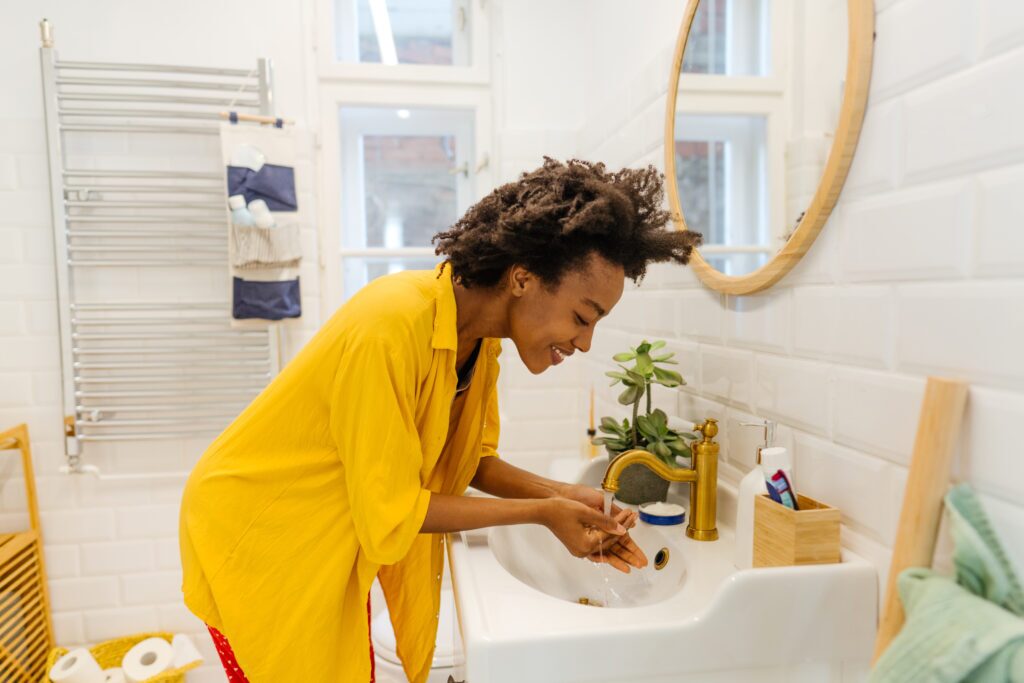Medical review by Andrea Eisenberg, MD
Summary:
- Specific birth control methods can be an effective method for controlling hormonal acne.
- Hormones significantly influence acne development, with androgens increasing and estrogens decreasing acne severity.
- Various hormonal contraceptives, notably combination pills, are approved for acne treatment.
- Non-hormonal acne management strategies exist for those unable to use hormonal birth control.
- The selection of birth control for acne depends on individual health factors and requires professional guidance.
- The decision to use birth control for acne involves weighing potential risks and benefits.
Using Birth Control for Controlling Acne
Dealing with acne can be a challenging experience, and understandably, you might feel frustrated at times. But did you know that the root cause of acne often goes beyond just skin-deep? Hormonal fluctuations can play a significant role in the development of acne, which is why it’s essential to understand the role birth control can play in your health journey.
If you’re struggling with acne, know that there are options available to you, and you’re not alone in this battle. With the right information and support, you can take control of your skin health and feel confident and empowered in your skin.
Understanding Hormonal Influences
Hormones play a pivotal role in acne development:
- Androgens increase sebum production, leading to clogged pores and breakouts.
- Estrogen and progestin have been shown to counteract these effects, reducing acne severity.
It’s important to understand that acne is not just caused by external factors such as diet and hygiene but also by internal factors such as hormones. By keeping your hormones in balance, you can help reduce the severity of your acne and achieve clearer skin.
Common Birth Control Methods
When it comes to birth control, there are several options to choose from, including:
However, some specific birth control pills have been FDA-approved for acne treatment, working by balancing hormones and reducing androgen levels, which can diminish acne outbreaks.
When deciding on options for your health, you should always discuss your thoughts with your doctor. That way, you’ll get the personalized information you need to make the best choice.
Look Before You Leap
There are a few factors you should consider before making a decision about using medication, such as:
- Your health history
- Other medication you are taking
- Potential side effects
The good news is, you don’t have to do this alone! You can always seek guidance from a Lemonaid healthcare providers who will provide recommendations based on these factors. So, let’s work together to find the best birth control option that suits your unique needs and helps you achieve clear, beautiful skin.
What if I Don’t Want Hormones?
Hormonal birth control is a standard treatment for acne in women, but it’s not always an option for everyone. The are many available and effective acne treatments. Non-hormonal alternatives can be used to manage acne, but these involve lifestyle changes rather than contraception.
These strategies may include:
- Topical treatments such as benzoyl peroxide, salicylic acid, and retinoids
- Dietary adjustments
- Regularly washing your face with a PH balanced cleanser
- Getting enough sleep
Are There Side Effects?
While it’s true that birth control pills can help reduce acne by regulating hormone levels, make sure you’re aware of the potential risks and benefits before starting this type of treatment. Some of the side effects include:
- Headaches,
- Breast tenderness and
- Nausea
- Increased risk of blood clots
However, for many women, the benefits of birth control for acne control outweigh the risks.
Your medical history is vital to consider if you’re using birth control pills for acne. Your healthcare provider can help you make an informed decision based on your needs and health history.
Learn about what birth control options available through Lemonaid Health may be right for you.
Frequently Asked Questions
1. Can all types of birth control pills help with acne?
Not all birth control pills are equally effective in treating acne. Typically, combination pills that contain both estrogen and progestin are the most effective in managing acne because they work by reducing the levels of androgens in the body, which can decrease sebum production and prevent acne flare-ups. It’s important to consult a healthcare provider to find out which type of birth control pill might be best for you.
2. How long does it take to see improvements in acne after starting birth control?
Improvements in acne can vary depending on the individual. Still, many people start to see a difference in their acne within three to six months after starting combination birth control pills. It’s important to give your body time to adjust to the hormones and for the effects of acne to become visible. Consistency and patience are key, and if you don’t see improvement within a few months, it may be time to consult your healthcare provider for alternative options.












